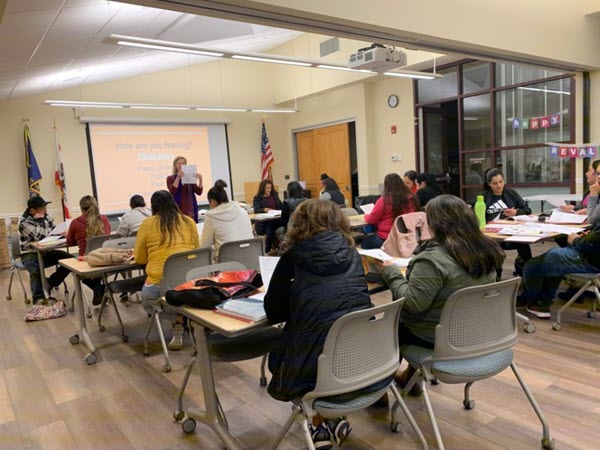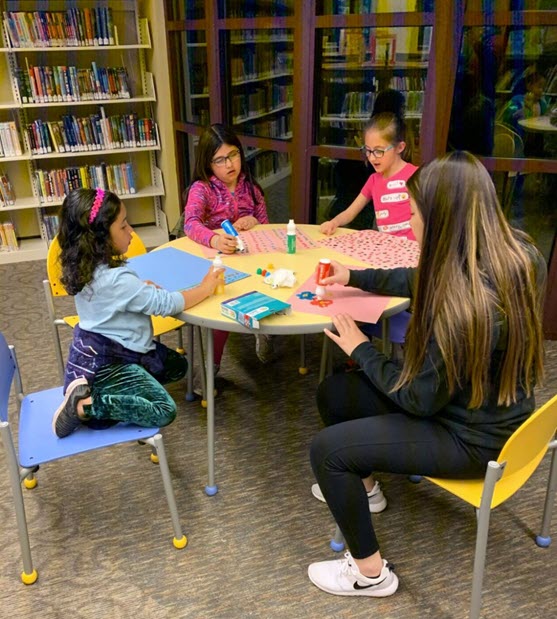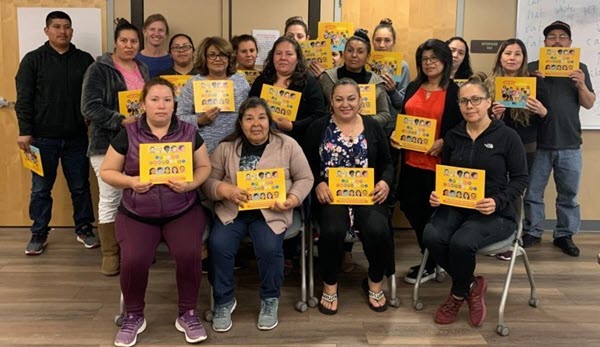Listen. Partner. Follow Through: Community Engagement Principles
How Yolo County Library created successful new ESL programs
Originally written and published on 22 June 2021 to LinkedIn by Lucille Windsor, a Library Services Consultant focusing on OCLC Wise, a community engagement system.

The best part of my job at OCLC is getting to hear about the impactful programs and activities that libraries create to solve community problems and help transform lives. I recently got the chance to talk to Nancy Pacheco and Elizabeth Gray from the Yolo County Library in California, USA, about a series of new ESL programs they created that are doing just that.
While ESL programs at public libraries are nothing new, what struck me as really important about the Yolo County program is how Nancy, the library's Outreach Specialist and Literacy Program Coordinator, incorporated community engagement principles into every step of the program development process.
Step one… listen
The library’s objective was to respond to community needs and build trust among a group that hasn’t traditionally used the library as much. The rural population of Yolo County includes many who struggle with daily activities because of distance from resources and lack of fluency in English. These needs were voiced through community discussions, which also surfaced a lack of adult education opportunities—ranked as one of the top six priorities for one of the local branches.
To further determine the needs of this group, Nancy met with some of the Spanish speakers in the community and asked people to rate the basic skill resources that might be the focus of a beginning ESL program for adult learners; they were most interested in basic reading, writing, speaking and communicating with their child's teacher.
Step two… partner
What became clear to Nancy during her conversations was that to be successful, the community needs to be involved in the creation and implementation of the programs. More than just being passive learners or audience-members, they wanted to be active participants. This took several forms:
- Leveraging relationships with organizations already working with Hispanic community (RISE)
- On-site childcare provided by trusted community members during the events
- Meals provided for participants
- Incentives to attend
- Work with ESL instructors from the local community college
Also, because the events had a set capacity (which they maxed out!), the library reminded registrants of how important it was to actually attend, since the seats wouldn’t be available for others.
Step three... follow through

When it was rolled out, "Beginning Life Skills for Rural Caregivers" provided two series of classes for Spanish-speaking adult caregivers with children in Esparto, California and a third in Winters, California. Because Nancy had incorporated community engagement principles throughout the program development, they knew that the programs themselves would be both culturally relevant and would meet each participant's literacy needs.
At least as important, though, was that this provided a foundation for an ongoing relationship with the library. Attendees learned about new educational opportunities for adults and children, increased their trust in people serving as cross cultural navigators in their communities, and gained confidence about the educational pathways available to them. And stats from the program underscore its impact:
- 11 out of 20 participants enrolled in a community college ESL course.
- 6 participants were paired with a Yolo Reads Adult Literacy tutor.
- 11 of the 20 registered for new library cards.
- 100 percent of the participants who are parents were able to successfully communicate with a child's teacher or other provider after taking this course.
The best part

I got to spend some time on a Zoom call with Nancy and Elizabeth where they shared with me, in detail, their experiences. And I was really struck by something Nancy said:
“Without trust you can proceed, but not succeed.”
From a process perspective, you can look at Yolo County’s community engagement activities and be impressed at how they impacted creation and roll-out of the program. But that doesn’t get to the best part about community-centered programming. The best part is: building trust.
These programs began well before the COVID-19 pandemic. But the trust built within the local Latinx communities was a resource that helped connect to and better serve this community during the past year. Because these programs were built on a foundation of community engagement with consistent communication, shared resiliency, and local educational partnerships, that foundation supported the success of other activities.
Nancy and Elizabeth—thank you so much for your time! I loved hearing more about these programs, and getting the chance to learn more about Yolo County Library. Your work is not only vital for your community, but an important inspiration to others.
Photos provided courtesy Yolo County Library, used with permission.
For more community engagement inspiration, please visit our hub at oc.lc/community-engagement.
Community engagement
Where do you go for inspiration? Invigorate your community engagement efforts with advice from library leaders.
